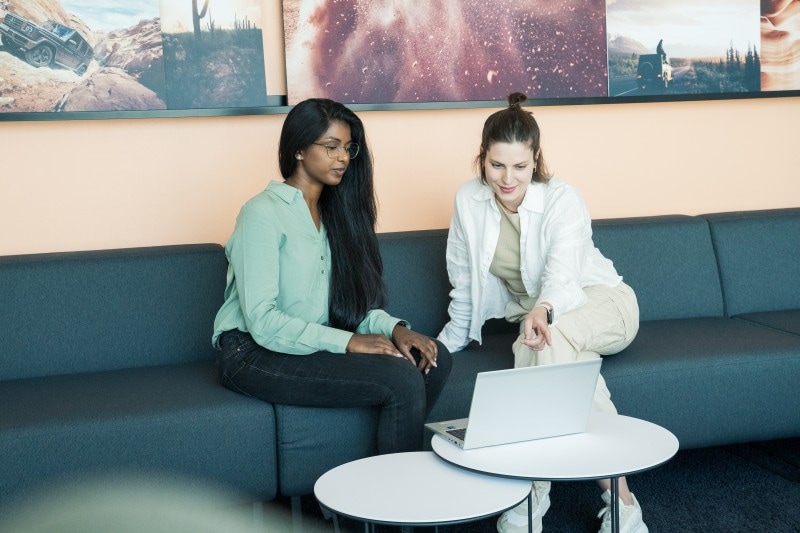You studied business economics with a technical edge, focusing on information systems for your master's degree. Does that technical understanding come in handy for your job?
Absolutely. In actual fact, 30% of my degree at the University of Stuttgart was devoted to mechanical engineering. In vehicle and control technology, for example, I was dealing with the same subjects as aspiring engineers. I didn't yet know at that time that focusing on technical aspects would help me out in my career later on. During a work placement in logistics at Mercedes-Benz towards the end of my bachelor's degree, I found connectivity in the context of Industry 4.0 utterly fascinating and wrote my dissertation on the subject. I was particularly interested in how data can be used to generate products in the form of "Internet of Things" (IoT) business cases. That's why I chose to explore IoT business cases further for my master's degree and wrote my thesis about connected car platforms. This helped me to understand what is possible at present and what new possibilities will arise in the future.
Lifelong learning is one of the keys to professional success in a rapidly changing world. How important is ongoing development to you – in both personal and professional terms?
Very important. I familiarise myself with every new product to make sure that I understand the requirements and challenges applicable to customers and the market. I'm always working to educate myself further, such as by obtaining certifications in the fields of product ownership and SAFe Scrum Master, so that I can efficiently implement all the various requests and requirements. SAFe stands for Scaled Agile Framework, and it focuses on agile project management in a cross-functional team.
Your job means that you are in constant contact with colleagues from lots of different areas.
That is true. I act as a point of contact, working with people from a wide range of specialist units. First of all, it's important for me to talk to the product owners at Mercedes-Benz AG so that I know about the latest development status of each product. My work requires me to have a good network. Secondly, I work with IT experts both inside and outside my unit. However, I also work with the Legal department and Sales team to ensure that everything is in place to ensure a smooth and reliable customer journey. Talking to all my colleagues means that I'm always learning new and interesting things.
That's a lot of different functions. What helps with mutual understanding and cooperation?
The development process, for example, involves product owners, software architects, developers and business managers all working together. An idea has to go through a number of committees and decision-making levels before it is developed into a product. We practise a team culture of openness and honesty across all units. Treating each other with respect is hugely important to us. When we trust each other, it's easier to find solutions to tricky assignments, and misunderstandings just don't happen.
Last question: which digital service do you consider groundbreaking in the context of vehicles?
In my master's thesis, I recommended that vehicle manufacturers make the connected car ecosystem accessible externally – with all due respect for data security and data protection, of course. We're doing that with services such as Electric Vehicle Status 3.0 for smart charging experiences. In my opinion, making the step forward from a closed system is groundbreaking for all kinds of digital services, and many people will enjoy the benefits. Our anonymised products such as Hazard Warnings , which are used to register localised hazards such as potholes during travel and share the data with local authorities, are helping to improve roads and optimise the information provided by navigation services.
,xPosition=0,yPosition=0.5)

,xPosition=0.5,yPosition=0)